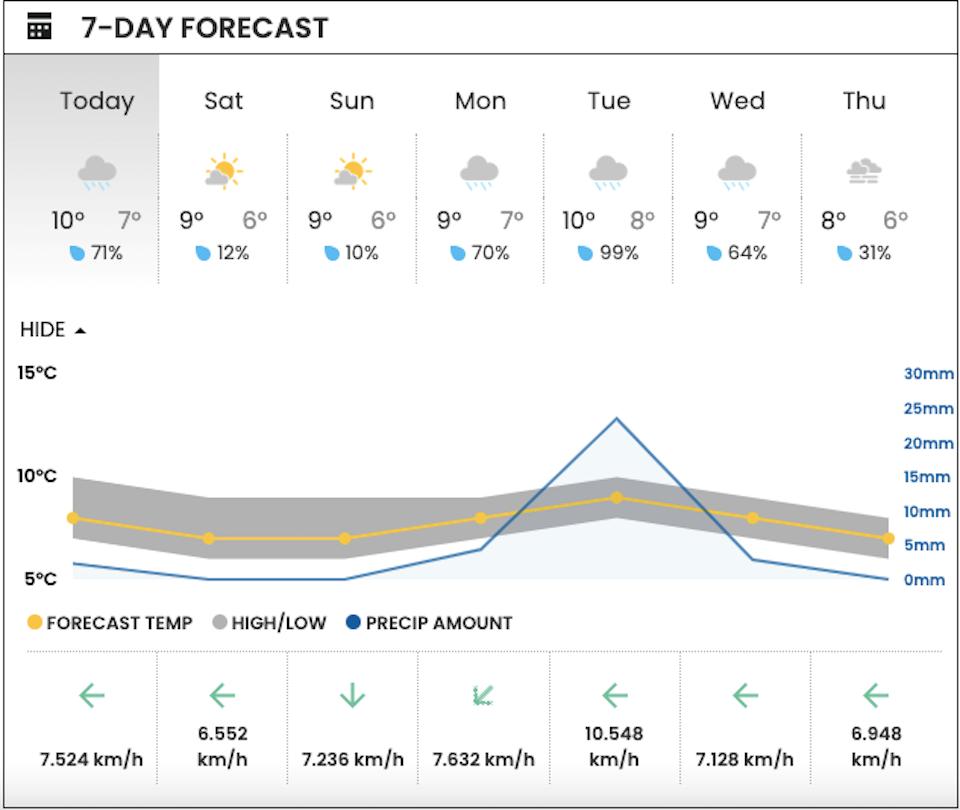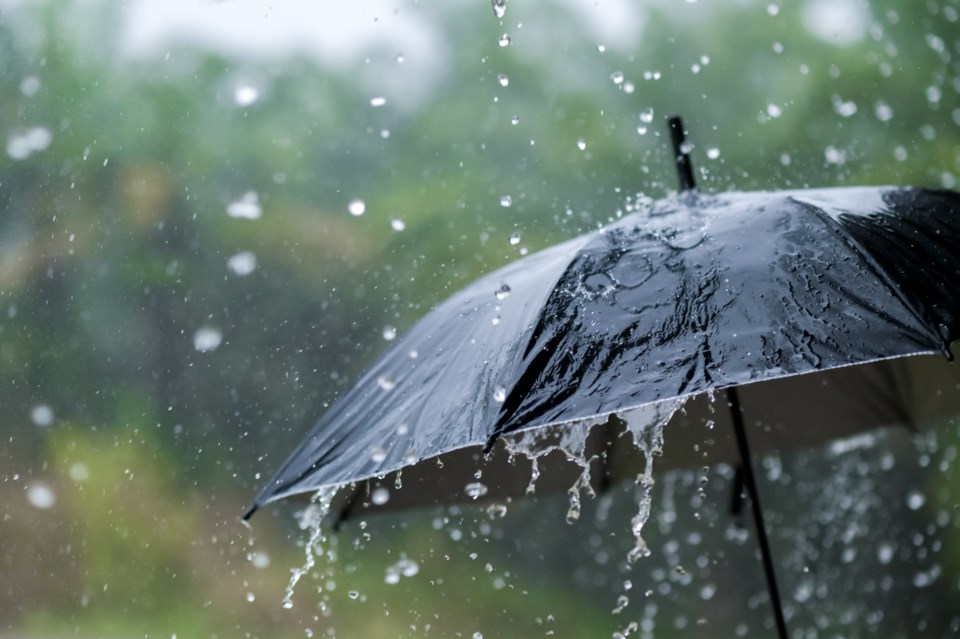Above-average temperatures will continue to dominate the Metro Vancouver weather forecast through the weekend but some significant rainfall is expected next week.
The rain stopped falling across the Lower Mainland on Friday, Dec. 15 and skies are only expected to be partly cloudy overnight.
V.I.A.'s Downtown Centre Weatherhood station in Vancouver shows above-average temperatures through the weekend, with daytime highs ranging between 10 C and 9 C and falling between 6 C and 9 C overnight.
The Richmond City Centre station shows similar, although slightly cooler temperatures, with highs ranging between 8 C and 9 C and falling between 4 C and 6 C overnight.
The average temperatures for Vancouver International Airport (YVR) in Richmond at this time of the year are highs around 5 C falling to freezing overnight, based on Environment Canada's historical data.
New Westminster is also expected to see temperatures a few degrees above seasonal averages, with highs ranging between 8 C and 12 C and overnight lows ranging between 3 C and 5 C.
While Saturday's forecast includes a mix of sun and cloud, there is a 30 per cent chance of showers on Sunday. But things are expected to take a decidedly wet turn kicking off the working week.
Monday's forecast includes a 70 per cent chance of rain, with amounts up to 10 mm, while Tuesday is expected to see significant rainfall with amounts up to 25 mm.
Metro Vancouver weather forecast
Environment Canada Meteorologist Derek Lee told V.I.A. in a previous interview that Metro Vancouver has almost no chance of having a White Christmas this year. As El Niño starts to influence local weather, temperatures aren't expected to get low enough for long enough to produce a wintry scene on the big day.
But El Niño isn't the only factor influencing local weather.
The Weather Network says Pacific air has brought warmer-than-average temperatures across Canada over the past week, producing record highs in places like Nunavut and parts of northern Alberta.
Additionally, the jet stream of warm air has cushioned the country from getting a blast of bone-chilling Arctic air. These cold events bring temperatures multiple degrees below seasonal averages and can set the stage for significant snowfall.





